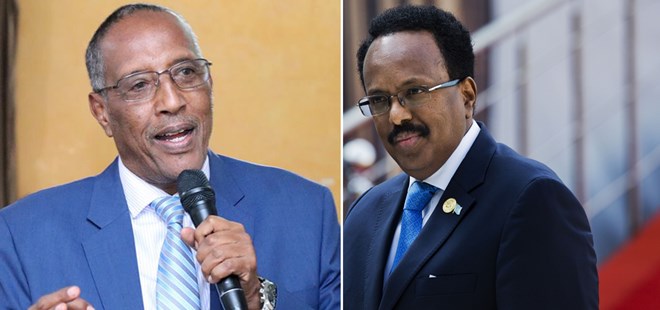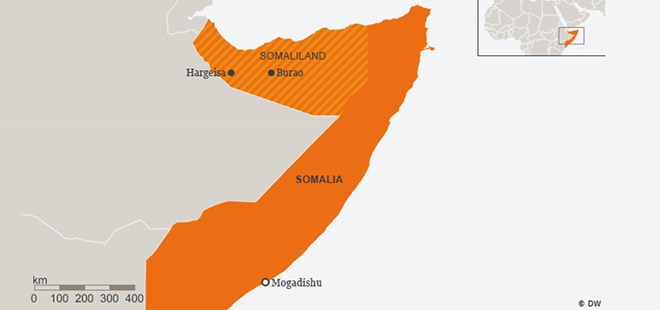Saturday June 27, 2020
By Neamin Ashenafi

This week marks the independence of Somalia from the yoke of British and Italian colonization. During its colonization, Somalia was divided between Britain and Italy, whereby the northern part of the country was called British Somaliland and other parts of the country was under the rule of Italy. By July 1, 1960 Somalia became an independent and unified country.
However, while July 1, 1960 marks the day the former Italian Somaliland became independent from Italy June 26, 1960 marks the anniversary of British Somaliland independence from Britain. To this effect, on July 1, 1960, both areas were united as the Republic of Somalia.
Though the two separately administered parts of the same country established a unified Republic of Somalia, it did not last long and the relation between the two were not cordial due to some issues of clan representation and centralization of power.
These issues, which escalated into military measures under the then dictator Siad Bare, quickly deteriorated relations and forced Somalilanders to look for other options, such as separating from the unified Somalia. However, after the government was overthrown in 1991, the country has since disintegrated and the Republic of Somaliland declared statehood, although it has not received recognition by the international community.
Tensions between Somalia and Somaliland remain high. According to numerous documents, the core issue remains to be Somaliland’s political status in light of its 1991 declaration of independence, which Somalia has rejected. Relations frayed in 2018, when troops from Somaliland and Puntland, a semi-autonomous regional state in Somalia loyal to the federal government in Mogadishu, clashed over a disputed territory.
Among the efforts made to narrow the gap between the two sides, the recent one was initiated by Ethiopian Prime Minister Abiy Ahmed (PhD), who had brokered a face-to-face discussions between the two, back in February. The PM, while hosting the African Union Summit, arranged a side meeting between the two. However, no official statement about the agenda of the discussion has been issued to date.
Though many mainstream and social media reports claimed that the Somali President Mohamed Abdullahi Farmajo had accepted the invitation of visiting Hargessa by his Somaliland counterpart President Muse Bihi Abdi, the move was bitterly criticized. Opposition from hardline nationalists on both sides of the aisle sited historical grievances and decades of separate rule, which has made efforts to restart dialogue, an uphill task.

To revive the dialogue between the two, another round of meeting was hosted by the President of Djibouti, Ismail Guelleh, on June 14, 2020, where the president acknowledged the meeting was a follow-up on the efforts made by the Ethiopian PM.
The two leaders met in the presence of many observers including PM Abiy Ahmed at the presidential palace in Djibouti, to discuss issues relating to their relations.
Following their meeting, reports circulated that Somaliland President Musa Bihi returned home from Djibouti confident the talks with Somalia will bring renewed hope to his country’s citizenry and gain their desired place in the international community.
While the thorny issue of Somaliland’s international recognition was not discussed, a technical committee was formed and discussed five issues that were identified. In the Memorandum of Understanding signed by the technical committee, it was agreed that there should be a code of conduct that guides future talks, implementation of past agreements and confidence building between the two sides.
However, Somaliland still maintains the issue of Somalia recognizing her independence should form part of the agenda, ultimately.
“The act of recognizing and supporting the independence of Somaliland would go a long way to heal the wounds of the past and enable our two states to embrace each other in our independent but closely interwoven futures,” President Bihi said in his remarks.
It was further agreed that two subcommittees on Aid and Investment and the other in Security, will meet in 15 days, while a joint ministerial committee will meet in 45 days in Djibouti.
Somalia’s Interior Minister, Abdi Mohamed Sabrie, said the Somali government is committed to having a genuine dialogue with Somaliland. He further said that the agreement signed shows the commitment of both sides to continue the talks in order to address the essence of the issues that are facing both countries. Foreign Minister of Somaliland, Yasin Faraton, in his part said that the talks were a step taken in the right direction.
The renewal of dialogue between the two countries has attracted international interests from the General Secretariat of the Organization of Islamic Cooperation (OIC), welcoming the initiative and the European Union (EU), lauding the resumption of dialogue.
EU High Representative/Vice President Josep Borrell said the resumption of dialogue is an important and positive step in the process of normalizing their relations, bringing renewed hope not only for the people of Somalia and Somaliland but for the Horn of Africa as a whole.
“It is an essential part of confidence-building measures to reconcile differences and promote peace-building, prosperity and development in the region. Djibouti and Ethiopia played a determining role in making this dialogue happen,” Borrell said.
Other countries and international organizations that have expressed support to the ongoing dialogue include the United Kingdom, African Union Mission in Somalia (AMISOM), Belgium, Canada, China, Denmark, Ethiopia, Finland, France, Germany, the Intergovernmental Authority on Development (IGAD), Ireland, Italy, Japan, Netherlands, Norway, Sweden, Switzerland, Turkey, Uganda, United States and the United Nations.
In a joint statement, they said: “We welcome the meeting as an important step in strengthening communication and fostering understanding and encourage the technical committee named by the principals to deliver tangible benefits for their people.”
Commentators, however, are suggesting that the ongoing dialogue should primarily focus on designing the modalities for future dialogues than focus on the question of statehood and tense political issues. The two sides should agree to hold technical talks as a step towards negotiations on more sensitive political subjects. These talks should focus on security and economic issues where tangible gains can build mutual confidence. Discussing Somaliland’s political status could create counterproductive dynamics, including with Gulf States, and should happen later, the commentators advised.
Given the high level of suspicion between Somalia and Somaliland, and the increasing interests of superpowers in the region, some individuals and commentators close to the matter have suggested the role of an international mediator in an effort to achieve progress, with roles assigned carefully. The most promising approach might be for the African Union to convene talks, or ask an eminent statesperson to lead them, or solicit technical assistance from a group of friends that might include countries like Turkey, Ethiopia, Sweden and Switzerland – which have been at the forefront of efforts to encourage talks, as well as the European Union.